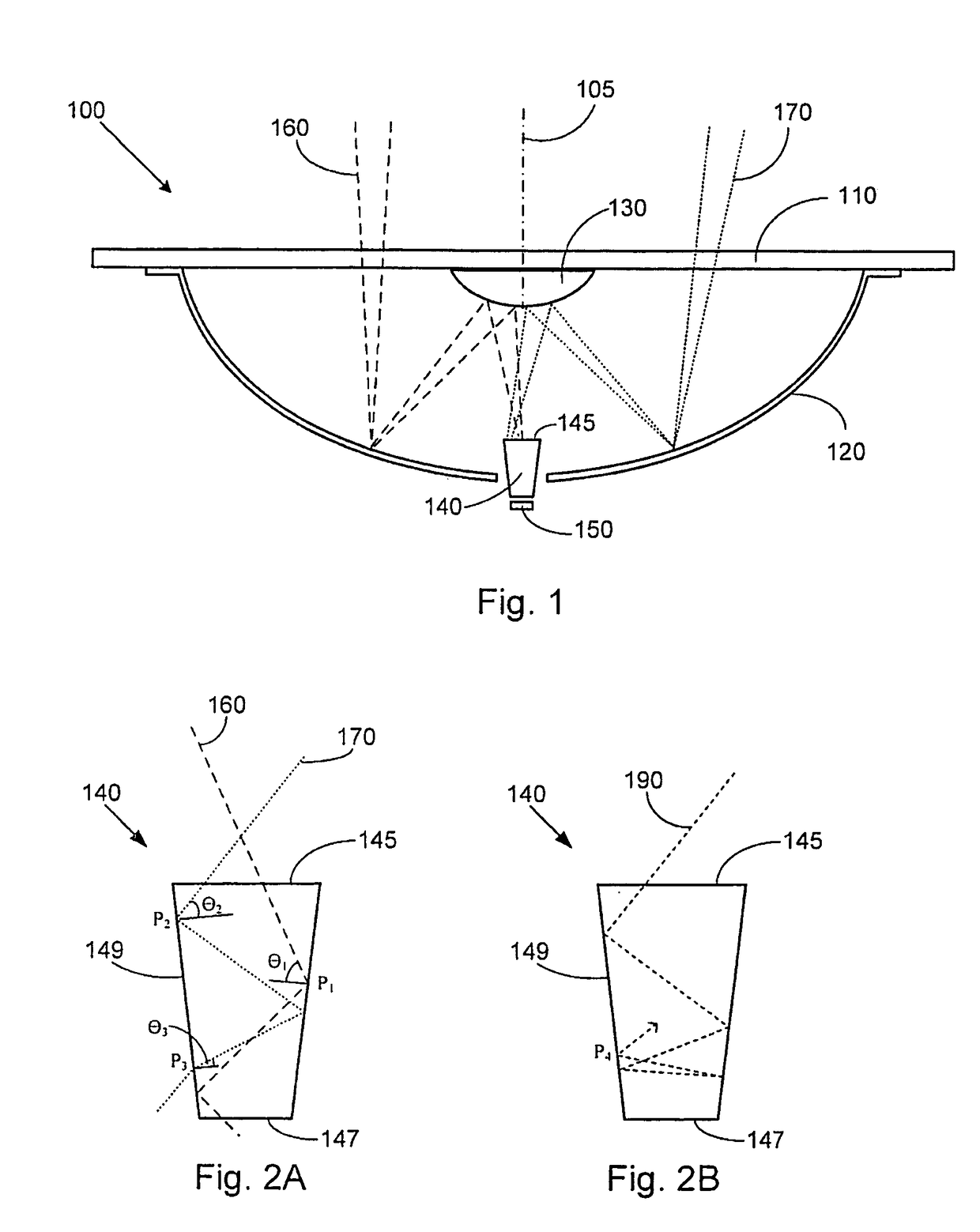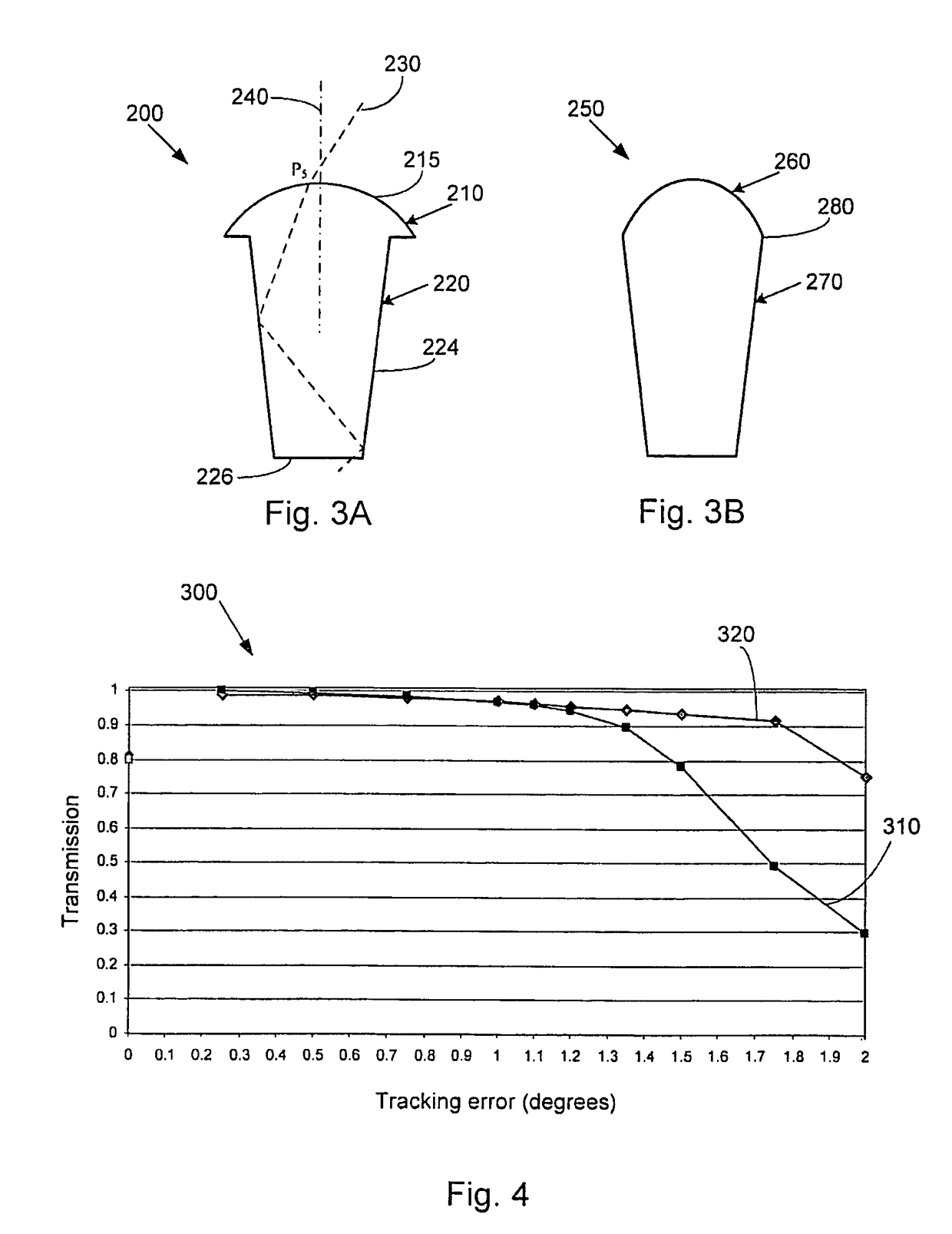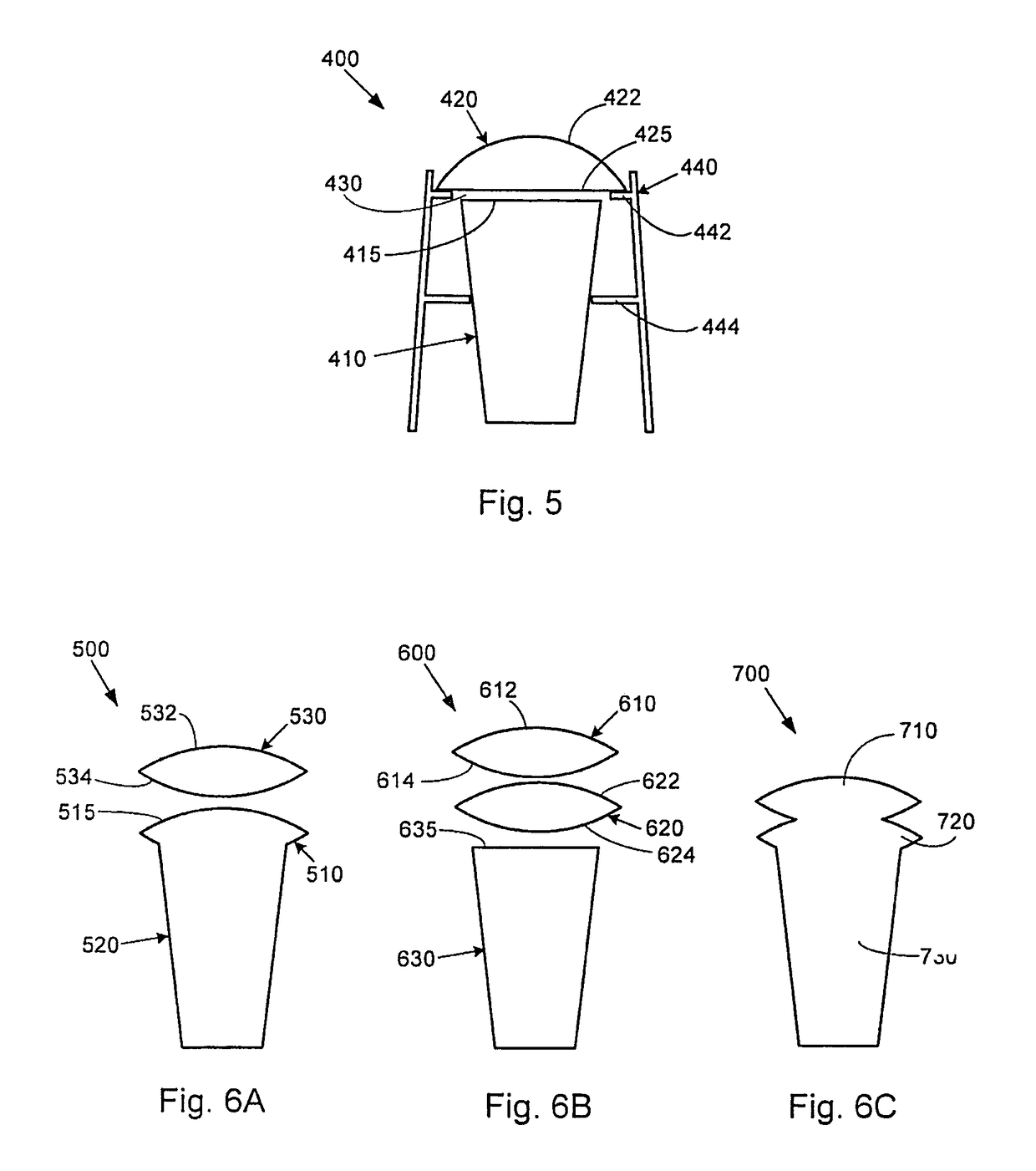Combination non-imaging concentrator
a concentrator and non-imaging technology, applied in the direction of instruments, lighting and heating equipment, optical elements, etc., can solve the problem that the efficiency of the solar concentrator unit is not affected, and achieve the effect of increasing the acceptance angle and obliquity of reflection
- Summary
- Abstract
- Description
- Claims
- Application Information
AI Technical Summary
Benefits of technology
Problems solved by technology
Method used
Image
Examples
Embodiment Construction
[0012]Reference now will be made in detail to embodiments of the disclosed invention, one or more examples of which are illustrated in the accompanying drawings.
[0013]FIG. 1 depicts a solar concentrator 100 of the type disclosed in U.S. Patent Publication No. 2006 / 0266408, entitled “Concentrator Solar Photovoltaic Array with Compact Tailored Imaging Power Units.” Solar concentrator 100 includes a front panel 110, a primary mirror 120, a secondary mirror 130, a non-imaging concentrator 140, and a solar cell 150. The presence of non-imaging concentrator 140 allows solar cell 150 to be positioned externally to primary mirror 120, where heat sinking measures may be applied. When the sun is aligned with the central axis 105 of solar concentrator 100, solar radiation enters solar concentrator 100 as exemplified by “on-axis” rays 160, illustrated by dashed lines. On-axis rays 160 enter solar concentrator 100 through front panel 110, reflect off of primary mirror 120 and secondary mirror 13...
PUM
 Login to View More
Login to View More Abstract
Description
Claims
Application Information
 Login to View More
Login to View More - R&D
- Intellectual Property
- Life Sciences
- Materials
- Tech Scout
- Unparalleled Data Quality
- Higher Quality Content
- 60% Fewer Hallucinations
Browse by: Latest US Patents, China's latest patents, Technical Efficacy Thesaurus, Application Domain, Technology Topic, Popular Technical Reports.
© 2025 PatSnap. All rights reserved.Legal|Privacy policy|Modern Slavery Act Transparency Statement|Sitemap|About US| Contact US: help@patsnap.com



